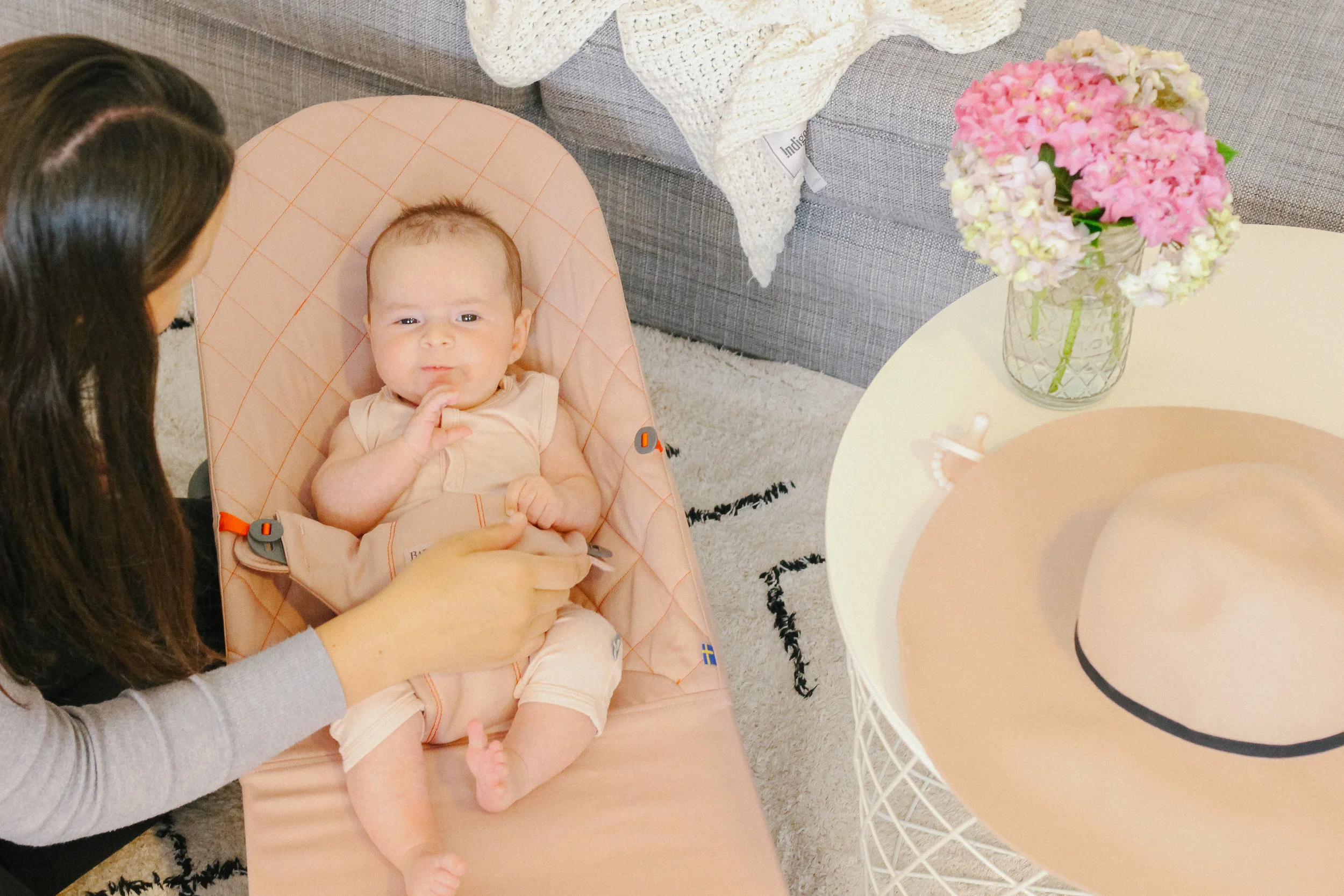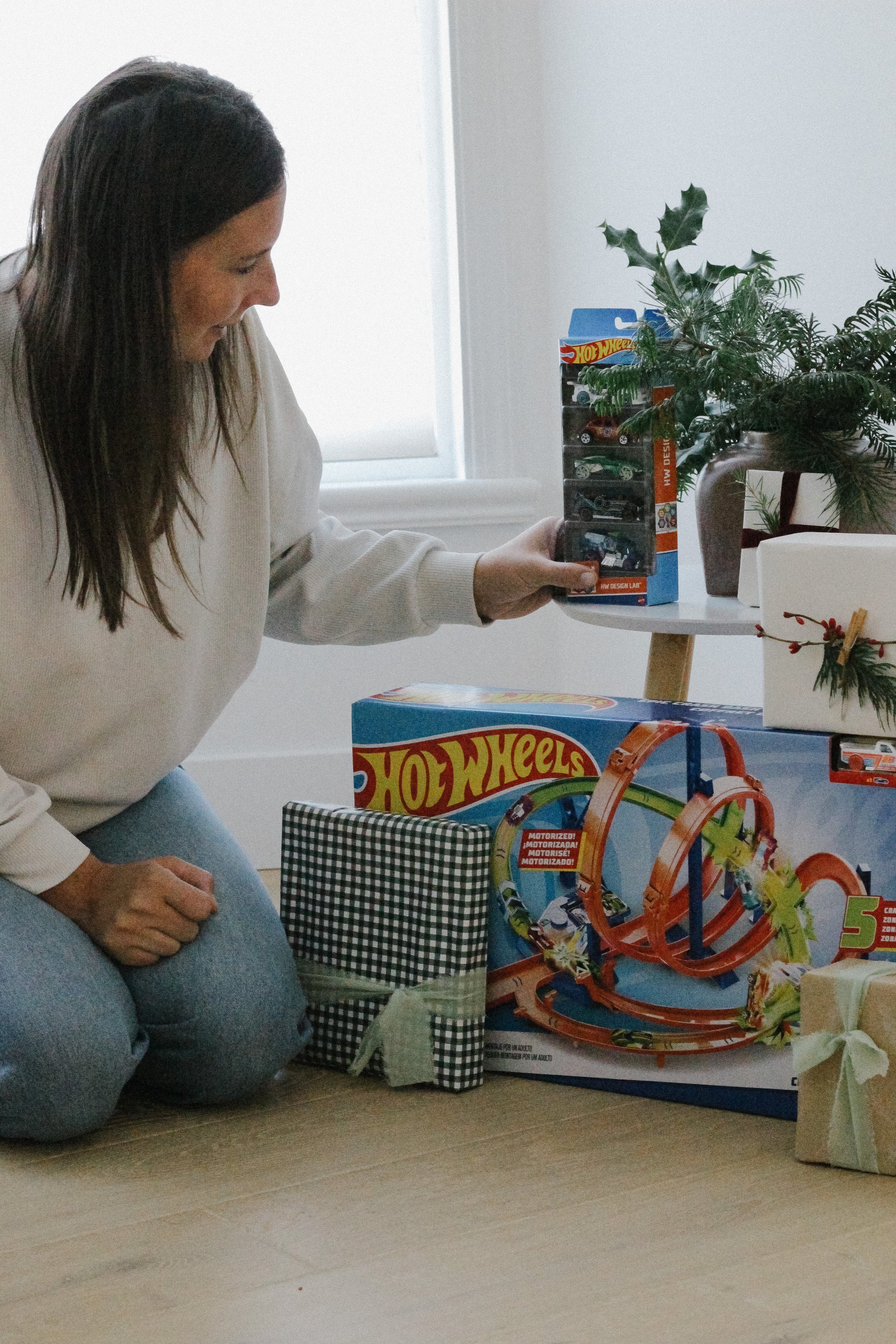12 Hours Sleep at 6 Weeks Old
/The FIRST thing and most important thing I want to say is that there are many different ways to sleep train your babies. I just want to share what I have done with my kids and maybe there is one thing I do that you haven’t tried or thought of. Also, of course there are medical reasons as to why your 6 week old would not be sleeping through the night (weight gain, complications at birth, premie, etc.) and I just want to say that you are doing an amazing job - keep going, the day will come.
There are also some of you that have tried incredibly hard to sleep train and your kid just doesn’t sleep well. Maybe they woke up at 5:30 this morning or up 8 times in the night and you have tried everything in the book. Feel free to skip this post because you probably have already tried it all.
In no way am I trying to say this is the best way or my parenting style is the right one, just simply trying to pass on some information as to how I go about my nightly routine with our third child.
And finally, I think some kids are just wired to sleep longer. Just like some adults can function well off of little sleep.
Ok…..after all that, here we go:
I’m going to list a few things (in no particular order) that I do as I believe they are all pretty equally important, and combined, have helped our babies sleep through the night at an early age. Cairo our first kid, slept for 12 hours at 10 weeks, Ezri, our second, slept for 12 hours at 8 weeks and Kovie slept for 12 hours at 6 weeks (obviously our favourite).
1. Light During the Day, Darkness at Night
-This means I open the blinds in her room everytime she naps during the day and keep them closed at night and make sure her room is super dark (use blackout blinds for night time sleep). I do this right from birth as it helps develop their CIRCADIAN rhythm. Babies don’t know they should sleep at night and be awake during the day so it is one of the first things we get to teach them. When they are awake I try and give them lots of interaction (their siblings help with this too) so a safe place I put them is in the Baby Bjorn Bouncer Bliss Chair. This chair gives a newborn the proper support they need and when they get a bit older I use this chair all the time for the first few months of feeding solids.
2. Feed Time Differences
-Again this helps with developing their Circadian rhythm so they know when they should be awake and when they should go back to sleep. Day time feedings always involve lots of light/noise and night time feedings should be dark with less noise. Think ALL BUSINESS. Night time feeds there should be no interaction, no smiles, no talking to your baby, etc. You want them to know that it is not more fun to be awake than sleeping at night.
3. Swaddling
-Obviously there is lots of opinions on swaddling but I swaddle. Babies are used to being in a tight space in the womb so I feel like this creates a womb-like atmosphere, which they are already used to. We use The Ollie World swaddle and our kids usually transition out of a swaddle at around 8 months.
4. Noise Machines
-Our kids all sleep with noise machines and again, this is to replicate the womb. Inside the womb is quite loud and to all of a sudden go from that to a somewhat quiet room is quite different for a baby. Also, we live in a basement suite so it allows our house to be loud even after the kids are in bed - I have this one in each room.
5. Cluster Feeding
-Ok so cluster feeding is when you feed every 1.5/2 hours at night to basically gear them up for their long sleep. I tried starting this at 2 weeks with Kovie and she just wasn’t ready - it completely backfired on me and I think she was up until 1am that night. I tried again at about 3.5 weeks and that worked great. Basically our schedule went like this:
3-4pm nap
4pm feed
5:30 short nap (like 30 min and then I would wake her up)
6pm feed
7:30pm feed
8:00 bed
So….that 6-8:00pm stretch is really tough. You HAVE to keep them awake. so a wet cloth, or a bath really helps. I work extremely hard to get them on this schedule. I want to be super honest and tell you that it is REALLY hard work. I say no to a few things at night because it just doesn’t work to keep this schedule but I know that it will pay off for me in a couple weeks. After a week or probably two weeks of doing this it gets easier as your baby will obviously get used to that routine and it won’t be as hard to keep them awake during that last stretch.
6. Wake Up Time
-I wake our babies up in the morning. Crazy right. Whatever schedule I want to set, I pick and then I stick with that. So if I choose 7:30am, then most mornings I would make sure she is awake around 7:30 so she gets used to a daily routine.
7. Falling Asleep in Bed, Not in Your Arms
-So by about 6 months of age, babies develop something called OBJECT PERMANENCE. Basically they can realize that someone or something was once there and now they/it is not. They will know that they fell asleep in your arms and when they wake up in the night (as babies wake up many times in the night) they realize that they aren’t in your arms anymore and are in a completely different place. Because of this, we try and train our kids to fall asleep on their own in their own beds. So at bedtime, I rock them so they are sleepy and then put them into bed to fall asleep completely. Sometimes this takes a few tries (rocking them, putting them down, only to have them cry as if they aren’t quite ready for bed) but it does teach them to fall asleep on their own.
8. Sleep in Their Own Bed/Crib
-Relative to point #7, you want your baby to know that their bed is the place that they sleep. This mean that in their first few weeks of life, I rarely have them sleep on me or in someone’s arms. Of course there are times that I do, but for most of their naps/bedtime sleep, they are swaddled, with a noise machine, and in their crib/bassinet. Again, this helps with routine and teaching them where they should be sleeping and where they should be awake. My family knows this as well so when our babe starts to fall asleep in their arms they know that I will probably take them to lay them down in their crib to keep with their routine. Once again, there are exceptions (that friend who popped in to meet them, or your husband who wants to do some skin to skin time, etc.) but 95% of the time my babies sleep in their crib/bassinet at home.
That’s everything I can think of that I do to help our babies sleep through the night at an early age. If you have any questions feel free to DM me on Instagram @jane.shelin and I would love to help in any way that I can!





















